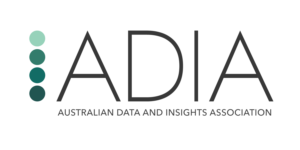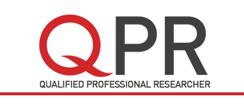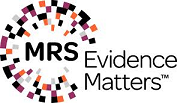National Reconciliation Week 2021
June 2, 2021Sharing some final actions…
It’s coming to the end of National Reconciliation Week 2021 but reconciliation does not stop when the week ends. It should continue in our hearts, minds and actions as we move forward, creating a nation strengthened by respectful relationships between the wider Australian community, and Aboriginal and Torres Strait Islander peoples.
Here are the final actions that you can take to ensure that reconciliation is more than a word, it takes actions.
1. Understand political representation – Aboriginal and Torres Strait islander peoples have been fighting for a political voice, and structural changes like treaty, for more than 100 years.
Safer – Learn the long history of representative bodies and calls for treaty here.
Braver – Support current calls by First Peoples such as treaties, constitutional reform, and the Uluru Statement from the Heart.
2. Challenge our leaders to take action on justice – Proportionally, Aboriginal and Torres Strait Islander peoples are the most incarcerated people on the planet. There have been more than 470 who have died in police and prison custody since 1991.
Safer – Learn and understand the relationship between Aboriginal and Torres Strait Islander peoples and the justice systems.
Braver – Stand with First Peoples to lower incarceration rates, rates of family violence, and children in out of home care. Support and share the Change the Record and Raise the Age campaigns.
3. Buy from First Nations Businesses – Purchase Aboriginal or Torres Strait Islander art or products only from Indigenous-owned businesses.
Safer – Learn about the damage caused by casual or deliberate cultural appropriation. Follow and support businesses like @TradingBlak.
Braver – Call out exploitation of Aboriginal and Torres Strait Islander art, culture, people and businesses. Every Wednesday #wearitblakwednesday, wearing or sharing something you have purchased from a Blak business.
4. Defend land rights and native title – Australia’s First Peoples have defended their lands and waters, and asserted their rights to their homelands since the beginning of colonisation. Land justice is hard fought for and must be vigilantly guarded.
Safer – Educate yourself about the details and history of First Nations Land Rights and Native Title in Australia.
Braver – Find out about Land Justice efforts and advocacy in your local area. Appropriately leverage your skills and sphere of influence in support.
5. Acknowledging country – Acknowledging Country shows you accept and understand that no matter where you are across this nation, you are on Aboriginal and Torres Strait Islander lands. It is a cultural practice, and also a political act.
Safer – Know whose Country you are on – resources like the AIATSIS Map of Indigenous Australia are a useful starting point, but go further. Know the difference between and Acknowledgement of Country and a Welcome to Country.
Braver – Including the name of Country when posting letters and parcels. Encourage businesses you buy from to add an address section for this on ordering forms.
6. Care for country – Aboriginal and Torres Strait Islander peoples have stewarded, nurtured and cared for Australia’s diverse environment and waterways for over 80,000 years. Environmental knowledge and activism must prioritise First Nations right to manage and self-determine their own Country.
Safer – Support Aboriginal and Torres Strait Islander perspectives systems of knowledge on our natural environment, including Seed Mob, the Aboriginal Carbon Foundation, Firesticks Alliance, and Yerrabingin.
Braver – Learn about how climate change is going to directly affect Aboriginal and Torres Strait Islander peoples. Stand up in support for those it’s already affecting.
7. Speak up for languages – Language is inseparable from culture, and culture is empowerment. There are more than 250 Aboriginal and Torres Strait Islander languages, including about 800 dialects.
Safer – Know your local area language(s) of the Traditional Custodians of the land on which you live. Where available, organise for a Traditional Custodian to teach some of this language to your workplace or community group.
Braver – Actively support First Nations language revival programs. Know and use Aboriginal and Torres Strait Islander placenames and petition councils and governments to use placenames . Make First Nations languages visible in public spaces.
AND FINALLY
8. Get involved beyond NRW2021!
Safer – Find an NRW2021 event in your area… or better yet, host your own. Join the conversation on Facebook, Instagram, and Twitter. Post an Acknowledgement of Country on 27 May 2021, to mark the opening of National Reconciliation Week.
Braver – Take these actions and reflect on how you are going to move from safe to brave on issues affecting Aboriginal and Torres Strait Islander peoples, beyond NRW2021. Share with your community, family and friends. Ask others to take their awareness, and turn it into action on reconciliation.






